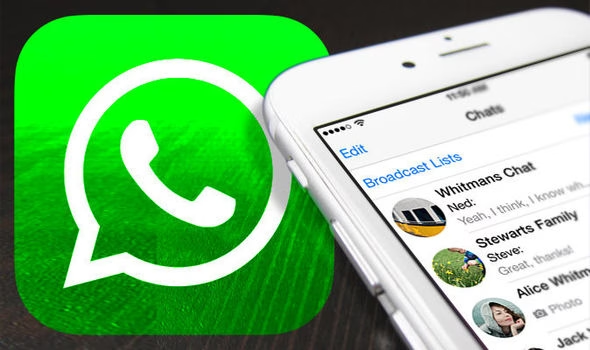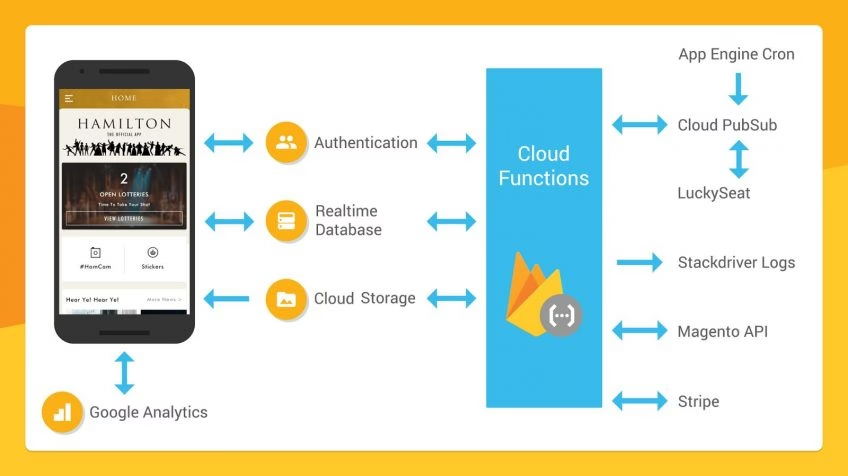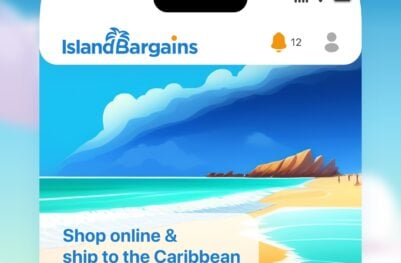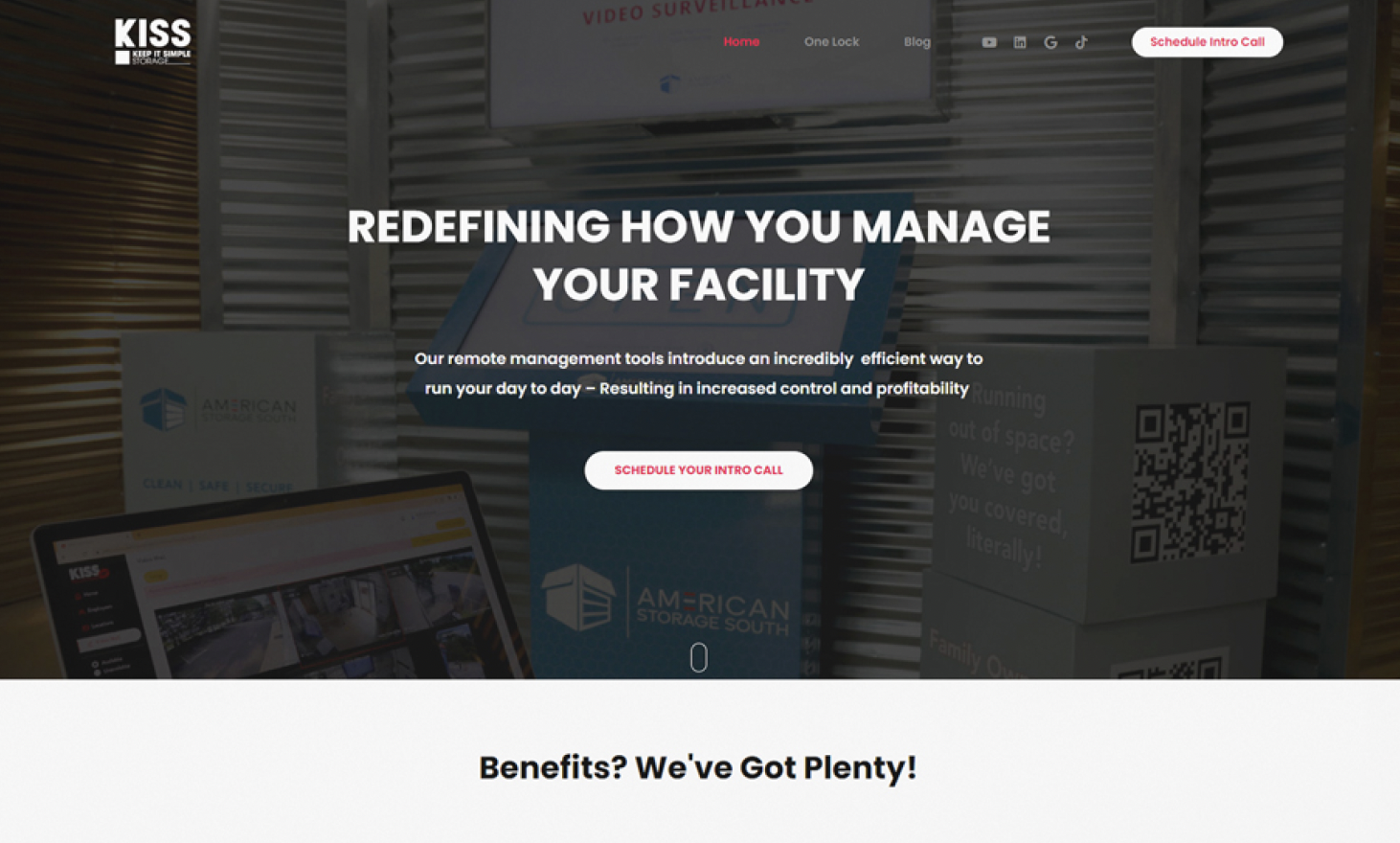- Developers
- Developer Blog
- Mobile App Development
- How To Build a Messaging App like WhatsApp?

profile

By Aran Davies
Verified Expert
8 years of experience
Aran Davies is a full-stack software development engineer and tech writer with experience in Web and Mobile technologies. He is a tech nomad and has seen it all.
Interested in knowing how to build a messaging app?
This is a huge market with so much potential.
According to a Statista report, “An estimated 1.82 billion people worldwide use mobile chat apps like WhatsApp. The number of users was 3.09 billion in 2021, and we can expect it to reach 3.51 billion by 2025.”
If you have an excellent idea, your mobile chat app can also carve out a niche for itself. In this guide, I will describe how to build an app like WhatsApp, so that you can bring your idea to life.
I recommend two approaches for messaging app development, as follows:
- Using SDKs from mobile app SDK providers, to develop Android, iOS, and Windows mobile apps;
- For Android apps only, use the Android Studio IDE and Google Firebase.
Let’s start with some essential features you should consider developing in your messaging app for your target audience.
Features of a mobile chat app you should consider providing

You want to build a successful messaging app; hence you need to ensure that it competes well in the messaging app market. To do so, consider offering the following features in the app:
- Voice Over Internet Protocol (VOIP) phone calls: An increasingly popular feature, which your users can utilize to make voice calls and have multimedia sessions over the Internet.
- Video chat: This feature allows your users to add a bit of personal touch without a 3rd party video streaming service.
- Group call: This feature can be very useful if your users are discussing a project together, or just planning their next camping adventure!
- Encrypted chat: This feature uses modern cryptography technology to secure the instant messaging feature from prying eyes and can be useful when your users exchange confidential information.
- Synchronization with the cloud, to ensure all backup and scaling of the chat app.
- Support multimedia: Modern-day chats between users increasingly involve rich media files such as videos and images, which your app should support.
- Users should be able to send confidential messages to one user within a group, hence your app should support ’self-destructing messages‘. To know more about self-destructing messages, read “Self-Destructing Messaging: It Makes Good Sense”.
- Support Geolocation integration to enable context-sensitive real-time interaction.
- Synchronize with calendar: This is useful for your users to plan their day and organize themselves, and it enables synchronizing with other calendar apps they may use.
- Multi-platform chatting is an important feature so that your users can engage the other users even when they are in transit.
- In-app purchases: Quite self-explanatory, this feature allows your users to buy the merchandise they want without even leaving your app.
- Payment integration: Mobile payment platforms are spreading significantly, and your app will lag your competitors if you don‘t allow integration with prominent payment providers.
Read more about the importance of these features in “How to Build your Own Real-time Chat App like WhatsApp?”.

Get a complimentary discovery call and a free ballpark estimate for your project
Trusted by 100x of startups and companies like
How to build a messaging app using SDKs
In this guide on how to build a messaging app, I will explain an easy approach, which involves using ’software development kits‘ (SDKs). There are prominent service providers that offer mobile chat app SDKs, and the list below isn‘t an exhaustive one.
Contus Fly
Contus offers a mobile chat app SDK, named “Contus Fly” that you can use to create a chat app. You can customize it extensively and access the underlying source code. Data storage on Cloud is possible, and the SDK uses prominent mobile chat app technologies like Erlang, XMPP, and Ejabberd.
Contus Fly uses Amazon Web S3 cloud and MySQL RDBMS. The broad features you can build with it in your chat application are as follows:
- Voice messaging and video calling;
- Push notifications;
- Online presence indicator and offline messaging;
- Location sharing;
- Group chat and group administration features;
- Synchronization and storage;
- Social media integration;
- Screen sharing and file-sharing;
- Security features like encryption and authentication.
Additionally, you can build collaboration features suitable for business, and integrate your custom-built APIs with this SDK. The SDK supports Android, iOS, Windows, and the web.
Assuming you have a reasonably skilled development team, you will need less than 10 working days to build an app like WhatsApp with the Contus Fly SDK.
SendBird
With SendBird‘s chat and messaging SDK and platform APIs, it‘s easy to build an app like WhatsApp. SendBird offers the following SDKs:
- iOS SDK;
- Android SDK;
- JavaScript SDK;
- .Net SDK;
- Unity SDK.
Broadly, I can categorize the features they offer as follows:
- Chat & messaging;
- Moderation & data;
- Customer support;
- Security & compliance.
With SendBird, you can build a mobile chat app for various use cases, e.g. live streaming chat, on-demand chat, online community, and gaming. The company has excellent documentation for its SDKs and APIs, check it out on the SendBird documentation webpage.
ChatSDK
ChatSDK has a free SDK that you can download and get started right away. They follow a dual licensing process, i.e. you can use the Chat SDK license if you use their code in your app. On the other hand, if you change the code and distribute that, you need the applicable open source license.
ChatSDK uses the Google Firebase ’Mobile Backend as a Service‘ (MBaaS). Firebase is a popular MBaaS, and you can read more about them in “How To Choose The Best Mobile Backend As A Service (MBaaS)?”.
ChatSDK offers iOS and Android instant messaging app SDKs on Firebase for free. The company offers the following key features:
- Private and group chats;
- Flexible login, i.e. using an email address, Facebook, etc.;
- Supports multiple message types (some message types require paid extensions);
- Push Notifications.
There are optional paid modules and extensions, for e.g. to handle audio and video messages, read-receipts, etc. Read their SDK documentation on the ChatSDK documentation webpage.
ApphiTect
ApphiTect provides mobile chat app SDK and APIs, and you can build iOS, Android, and Windows chat apps with them. It’s based on the Amazon Web Services cloud, while it uses XMPP, MySQL, Ejabberd, and Erlang.
Hire expert developers for your next project
1,200 top developers
us since 2016
At a broad level, ApphiTect provides the following features:
- Enterprise communication features;
- In-App messaging;
- Personal chats;
- VOIP;
- Video calls;
- Social interactions;
- Offline messages;
- Push notifications;
- Presence indication;
- Geolocation tracking;
- Synchronization and data storage.
Read more about their SDK on the ApphiTect website.
CometChat
CometChat provides a ready-to-use SDK for messaging app development. They support a wide range of platforms like Android, iOS, Cordova/PhoneGap, Ionic, and Xamarin.
The good part about the CometChat SDK is that it‘s standalone, and you don‘t need to refer to any other library. Your team will find it easy to integrate and consume the APIs. Visit the CometChat mobile chat SDK webpage to read more about it.
The SDK allows standard features like voice, text, and video chat. They also allow Bot integration. Of course, you can include your own branding, use their push notification features, and integrate their desktop messenger too.
CometChat provides extensive documentation for its SDKs and APIs, making it easy for you to develop a messaging app. The comprehensive documentation covers their Android and iOS SDKs, plugins for Cordova/PhoneGap/Ionic, APIs, and more.
Check out their documentation on the CometChat Developer Documentation webpage.
Mesibo
I recommend you explore Mesibo for your messaging application development project, due to the following reasons:
- The company, of course, has a mobile chat app SDK and API, but they also have a fully functional app. You can get the source code and build your WhatsApp clone very quickly!
- Their SDK and API documentation quality is excellent, but even more impressive is how they have organized their documentation. Your team will find it easy to follow the Mesibo documentation.
- Their free tier is generous! Up to 20,000 monthly active users (MAU), 10% of MAU concurrent users, 5 GB bandwidth, and 1 GB storage, you pay nothing!
They cover all key features, for e.g.:
- One on one messaging;
- Group chat;
- Voice and video calling;
- End to end encryption;
- EU GDPR compliance.
Check out the full list of their features here. The company supports all key platforms like Android and iOS for chat app creation.
Mobile chat app development with Google Firebase

I have earlier described the approach to creating your mobile chat app using SDKs and listed several SDK providers. Now, I will explain a different approach where you will create a messaging app like WhatsApp for Android only.
You will use the Google Firebase MBaaS, and Android Studio, which is an IDE for Android app development. You need to install Android Studio from here.
Hire expert developers for your next project
You also need a test device with Android 2.3 or later, and Google Play Services 9.8 or later. You need a connection cable, however, if you use an emulator then you don‘t need a device.
While this approach requires more development work, the good news is that there is a comprehensive training course that Google Firebase provides. You can find it in the “Firebase Android Codelab”.
After you have installed Android Studio, you need to follow the instructions in the training course, and take the following steps:
- Get the sample code from the Firebase GitHub repository;
- Import the starter app in your Android Studio session. You have most likely used Eclipse ’Integrated Development Environment‘ (IDE) and importing a project in Android Studio is like how you do it in Ecplise.
- Create a Firebase console project and connect your Android app.
- The sample code is a starter app with simple functionalities, and now you need to run it. You can’t send or receive a message now, see the next steps for that.
- Now you need to set up user authentication. Check the Codelab authentication section to know how you can configure the authentication APIs.
- Configure the “Read messages” function, by setting up a database in your Firebase console, and configuring it. Follow the Codelab “Read Messages” section for instructions.
- Implement the “Send Message” function by creating the required objects and using the required methods. The Codelab “Send Messages” section has the necessary commands and code snippets you need to use.
- Firebase app indexing will enable your users to index personal content on their mobile devices. You need to add dependencies, filters, and content. You also need to log user actions. Check out the detailed instructions in the Codelab section for adding messages to the on-device inbox.
- Firebase Cloud Messaging (FCM) allows you to send notifications to your app users. To do this, you need to add FCM dependencies and services. Learn how you can do so in the Codelab receive re-engagement notifications section.
- You can remotely configure message length using the Firebase console, by following the Codelab instructions.
- Firebase App Invites provide you with the ability to send installation invitations via email or SMS.
- Google owns Firebase, and you can use Google Analytics to see how users are navigating your mobile chat app.
- You can monetize your app, and report crashes. Firebase Test Lab will let you test your mobile chat app in the Cloud. Find out how you can do it in the Codelab section for testing your app.
This app has standard chat app features, you need to code additional features per your instant messaging apps requirements.
How much does it cost to build a messaging app like WhatsApp?
Your cost to build an app like WhatsApp will vary based on several factors, for e.g. the complexity, what approach you use, and your geography. However, you will likely require the following team composition:
- 1 project manager for 3 weeks to a month;
- 1 business analyst for 2 weeks (depending on how many non-standard requirements you have);
- 2 Android and 2 iOS mobile developers for 2 weeks;
- 1 front-end developer for 2 weeks (assuming you will use either SDK approach or an MBaaS like Firebase, you shouldn‘t need backend developers);
- 2 testers for 2 weeks;
- 1 designer for 2 weeks; however, if your requirement is simple and you can get started with the Mesibo ready-to-use app with minor configuration, you don‘t a designer.
There are variations to this scenario, for e.g.:
- If you are developing for Android only, then you can use the approach involving Android Studio and Google Firebase. You need fewer chat app developers then since there will be no iOS messaging app development.
- Different SDK providers offer different price points, which will impact your messaging app development cost.
- If you use the ready-made app that Mesibo provides and have rather simple requirements for your ’Minimum Viable Product’ (MVP), you will save development manhours. There are benefits to this approach for your MVP, and in the future, you can always enhance your app.
- Check out their pricing on the Mesibo pricing webpage.
A software development company with experience in developing a custom chatting app will help you a great deal in figuring out the right messaging app development strategy according to your business needs, etc.
DevTeam.Space has experience in building market-competitive mobile applications for businesses via its field-expert software developers community vetted for expertise in the latest app development technologies.
You can easily partner with these high-quality mobile app developers by sending your initial messaging application development requirements via this form. One of our account managers will get back to you for further assistance in developing your own chat app.
Frequently Asked Questions on how to build a messaging app
Provided that you have project management experience, you can onboard the required developers, set up the infrastructure, and get going. For those without sufficient development expertise, we recommend hiring a dev team from a software development company.
There are lots of platforms where you can hire remote developers to help with your project development. Always be sure to hire vetted developers to ensure your project goes as planned. Fill out a project specification form and DevTeam.Space can help you find the best ones.
Creating messenger apps like WhatsApp or Facebook messenger app is a complex process. Provided you and your team have all the relevant experience, in theory, you can make a messaging app. However, there is a lot more to successful software development than simply writing code. If your project management skills are not tip-top then we recommend onboarding developers with a PM.

Alexey Semeney
Founder of DevTeam.Space
Hire Alexey and His Team To Build a Great Product
Alexey is the founder of DevTeam.Space. He is award nominee among TOP 26 mentors of FI's 'Global Startup Mentor Awards'.
Alexey is Expert Startup Review Panel member and advices the oldest angel investment group in Silicon Valley on products investment deals.


